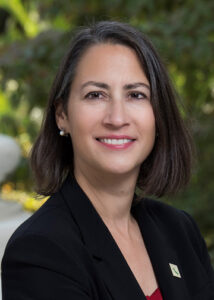Tackling the Budget
California is facing a perilous budget year. Although our economy remains strong, we’re seeing a decline in revenues that will impact the programs and services that millions of Californians rely upon.
Last week, our annual budget cycle started with the governor’s release of his spending plan. In the months ahead, both houses of the Legislature will hold dozens of hearings on the proposal, and we’ll work with the governor to finalize an agreement by our Constitutional deadline in June. So, what’s on the table and where do we go from here?
While California is the fifth largest economy in the world, we face a $38 billion budget deficit, which means cuts will most likely be made and all of the choices will be difficult. Governor Newsom proposed to pull $13 billion from the state’s rainy-day fund, reserves set aside in prior budget years. Throughout my time in the Assembly, I’ve worked with my colleagues to shore up our reserves so we have a more sustainable budget without the boom and bust cycles that have plagued us in the past. Utilizing some of those funds will insulate education from devastating budget cuts. With the loss of pandemic funding, some schools will still have to tighten their belts but largely our commitment to making sure our children receive an education will be fulfilled.
While the governor’s budget proposal largely spares schools, community colleges and universities, it does include $8.5 billion in budget cuts. The cuts will greatly impact our work to combat California’s three most challenging crises: housing, homelessness and climate change.
California is not alone in facing a housing crisis nor are we alone in dealing with a skyrocketing homeless population. But with 39 million people calling our state home, California has a dearth of housing, driving up prices for existing housing and pushing many on the margins to living on the streets. At a time when adding affordable housing capacity is arguably the state’s largest challenge, the governor has proposed $1.2 billion in cuts to housing programs and $700 million in delayed spending on programs to address homelessness, though he left in place $750 million for encampment sweeps.
Voters have been very consistent in telling us that dealing with housing and homelessness is at the top of their priority list. The first step to combating homelessness is shelter. The work to increase our housing stock and provide services to our homeless neighbors can take years. Yes, we need to clean up the encampments in our neighborhoods but without sustainable funding, programs working to move people into safe shelter and eventually permanent housing will be hampered in their ability to make a positive and measureable impact on a daunting problem. Without enough shelter capacity, that $750 million for encampment sweeps could end up doing little more than shuffling homeless Californians from one street corner to another and that’s not a solution that works for anyone.
Housing programs aren’t the only ones in the budget cut crosshairs. In a state that’s already vulnerable to climate emergencies, $3 billion of the governor’s proposed budget cuts would stem from money earmarked to deal with climate change. That $3 billion in cuts would fall on top of last year’s reduction of $1.5 billion in climate spending.
Here in the 44th Assembly District, we’re no strangers to the havoc wreaked by epic droughts and devastating wildfires. Home hardening and landscape clearing is ever more imperative. While the governor’s proposal wisely preserves the critical funding needed to combat wildfires across the state, it does not preserve funding to prepare for sea level rise and other looming climate impacts. I’m very worried about any reduction in climate spending and the long-term impact those reductions could have on our ability to prevent wildfires, preserve fragile habitat and resources, and reduce pollution. Cuts of this magnitude will reverberate throughout the state and be felt across the West. Climate change is not limited to within California’s state borders; and if the scientists are correct, we’re on an environmental deadline before catastrophe. We can’t afford to slow down our climate efforts when we need to be speeding up.
There are months of negotiations coming up between the Legislature and the governor to finalize the budget. There are portions of the governor’s proposals that I find prudent. There are others though that have me concerned. The steps we take will help chart the path forward for California and I’ll be working to ensure that it’s a sustainable one that protects our communities and resources.
What are your budget priorities? As always, I’d like to hear your thoughts on our budget, legislation or any general comments or concerns. You can reach my District Office at (818) 558-3043, or by email at Assemblymember.Friedman@Assembly.ca.gov.

